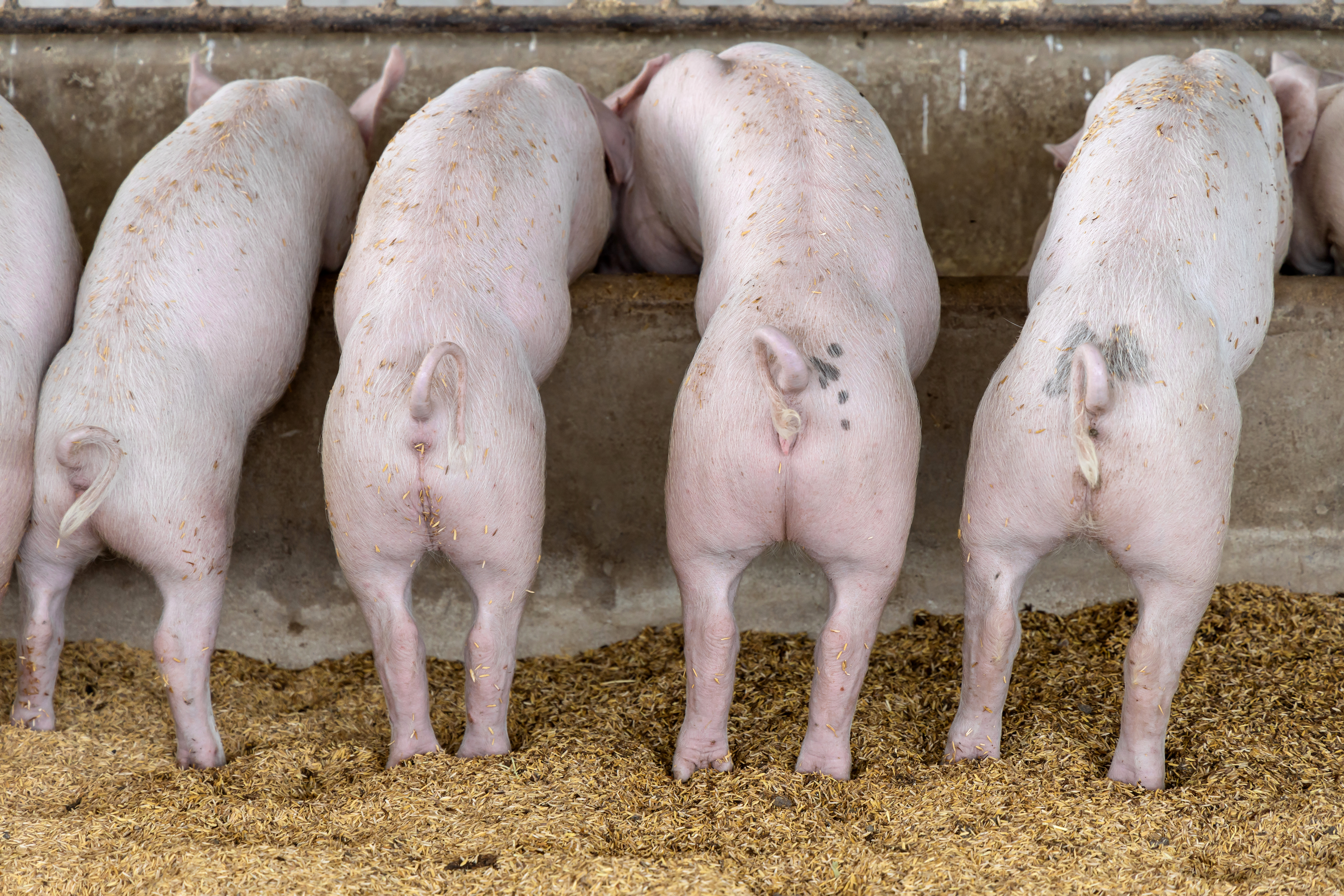



Inclusion of supplemental amino acids in diets of weaned pigs improves their ability to cope with disease challenges
Research conducted on behalf of Swine Innovation Porc indicates elevating the inclusion of amino acids in the diets of weaned pigs will improve their ability to resist disease challenges.The University of Saskatchewan and the Prairie Swine Centre in partnership with Swine Innovation Porc are evaluating the inclusion of elevated levels of amino acids in the diets of weaned pigs to improve their ability to cope with disease challenges.
Lucas Rodrigues, A PhD student with the University of Saskatchewan and the Prairie Swine Centre, says researchers are assessing the value of including supplemental Methionine, Threonine and Tryptophan, three commercially available amino acids, in the diets of pigs inoculated with Salmonella.

"Our overall goal with the research is trying to develop effective feeding strategies for pigs, especially weaned pigs," explains Rodrigues.
"These strategies will aim at maximising the producer's profits while reducing the reliance on in-feed antibiotics and also improving the pig's ability to cope with diseases while maintaining their performance.
"We have finished our first study of three and the results are showing us that indeed the current recommendations for growth and protein deposition will need to be elevated when the animals are exposed to enteric pathogens.
"We did not see any major effect of supplemental profile of amino acids when the animals are healthy but, when they are challenged with Salmonella, they definitely benefit from the supplementation through a less damaged gut, through improved overall health and consequently through improved growth potential."
These findings are expected to be applied by nutritionists in formulating diets for commercial herds, especially those with known problems of enteric pathogens.






